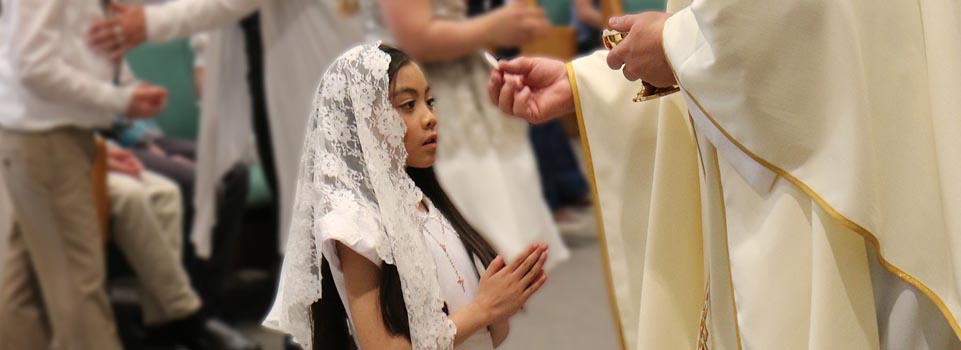
The Sacrament of the Eucharist is the “source and summit of the Christian life.” Through the Sacrament of the Eucharist, Jesus Christ is fully present, both physically and spiritually, when consecrated bread and wine become the Body and Blood of Christ during the sacrifice of the Holy Mass.
At the Last Supper, on the night he was betrayed, Jesus Christ instituted the Eucharistic sacrifice of his Body and Blood. This he did to perpetuate the sacrifice of the Cross throughout the ages until he should come again, and so to entrust to the Church a memorial of his death and resurrection: a sacrament of love, a sign of unity, a bond of charity, a Paschal banquet (Catechism of the Catholic Church, 1323).
The Eucharist is the sacrament that completes Christian initiation, in conjunction with the Sacraments of Baptism and Confirmation.
For more details on the Eucharist, watch the following video from the Word on Fire Institute
First Eucharist
First Holy Communion is considered one of the holiest and most important occasions within the life of a Roman Catholic. It is the first time that a person receives the Eucharist, by the eating of consecrated bread and drinking of consecrated wine. Most Catholic children receive their First Holy Communion when they are 7 or 8 years old, as this is considered the age of reason.
- Archdiocesan Standards For Preparing Children And Youth For The Sacraments(PDF, see especially pages 61-72.)
- Archdiocesan Sacramental Standards Additional Resources(PDF, primarily for teachers)
If your child is approaching Grade 2 or is a little older, we want to assist you in raising your child in the faith.
For more information, please contact your local parish office.
